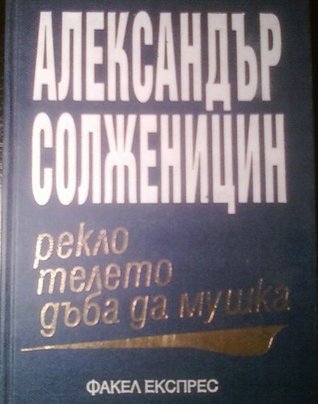What do you think?
Rate this book


782 pages, Hardcover
First published January 1, 1975
…they had discovered that royalties may take the form of barred windows and barbed wire.
special settlers: “Special settler” is a Soviet euphemism for a person banished to a remote area of the U.S.S.R.
Shevardino: The Shevardino redoubt was the site of a brief but significant clash between Russian and French forces on the eve of the battle of Borodino in 1812.
You would have to live through a long life of slavery, bowing and scraping to authority from childhood up, springing to your feet to join with the rest in hypocritical applause, nodding assent to patent lies, never entitled to answer back—all this as slave and citizen, then later as slave and zek: hands behind your back! don’t look around! don’t break ranks!—to appreciate that hour of free speech from a platform with an audience of five hundred people, also intoxicated with freedom.
“You refuse to forget anything! You have much too good a memory!”
I belong to the Russian convict world no less, and owe no less to it, than I do to Russian literature. I got my education there, and it will last forever… I feel that my whole life is a process of rising gradually from my knees…
During my time in the camps I had got to know the enemies of the human race quite well: they respect the big fist and nothing else; the harder you slug them, the safer you will be. (People in the West simply will not understand this, and are forever hoping to mollify them with concessions.)
…immense strata of educated mediocrities, this educated rabble which has usurped the title of the intelligentsia…
This kind of bandit masquerade is not altogether a novelty to KGB personnel. There are cases of hooligans going unpunished, hooligans who have beaten up undesirable dissidents in the streets, who have snatched briefcases from Western correspondents, who have broken windows of foreign cars. After the failure of the campaign to slander me behind my back, a bandits’ masquerade is just what you would expect.
Fate was not seeking its victim: the victim had set out to meet his fate.